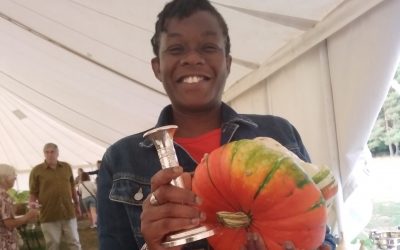In Min Kym’s memoir, the author suggests the parallel between her own life and that of a fellow child prodigy, Ginette Neveu, who at the peak of success in 1949 died in a plane crash and was discovered, Kym claims, still clutching her beloved Stradivarius violin. Kym ponders:
‘The world is probably divided into two types of people—those who don’t play the violin who think the story over-fanciful, and those who play the violin who can envisage exactly how that would happen’.
Such is the defensiveness of Kym’s writing at times, her consciousness that the world of the child prodigy, or of the professional classical musician, can seem bewildering or ridiculous to those unfamiliar with it. Although most of us can never fully fathom the life of a child prodigy, Kym’s anxiety of being misunderstood is intensified by a more recognisable predicament: her experiences of conflict between her ethnic Korean identity and a sense of self, vaguely described as ‘Western,’ which she defines in terms of desire, rebellion and autonomy.
The drama of Gone is centred on Kym’s all-consuming love for her rare 1696 Stradivarius and the devastating grief she went through after its theft, which, at the age of twenty-one, permanently changed the shape of her life and career. Yet, as much as the Stradivarius storyline animates the memoir with a unique narrative, Kym’s tale is also one of migration; of growing up with internalised dissonance and being pulled in antagonistic directions. After the Purcell School of Music recognises Kym’s immense talent as a young child, her parents make the heavy decision to move from South Korea to the UK for her to pursue her potential – a decision Kym understands as bearing emotional and material repercussions for all her extended family.
The doubts and conflicts Kym experiences as a musical prodigy, being objectified as a ‘mascot’ and facing up to a constant swell of expectation, are set before a backdrop of a much longer family history of self-denial and suffering. Recounting the post-war history of her grandparents and parents, she writes with an earnest admiration for their survival of great personal and national tragedy – amputated legs, death and hunger haunt her even in the relative safety of a music practice room or stage. Situating her own struggles amidst the violence of her family’s past, Gon’ reads as Kym’s process of working through the upheaval of migration. Her reflections on that past stand out as her strongest writing – a moving evocation of the intergenerational and cyclical nature of hardship; of the social codes which have in various ways led to each of her family members’ own stories. That feeling of familial solidarity, however, is largely overrun by a prevailing resentment within Kym, conveyed by a style of prose that is, at times, suffocating in its misery. The East Asian stereotype – relentlessly strict, patriarchal, emotionless and cold – is not one that Gone makes much effort to resist as Kym struggles to negotiate cultural differences and family obligations.
We receive glimpses, nevertheless, of a sense of resilience acquired later in life; acknowledgement of how communication fails but also of how mutual understanding can still evolve. Kym writes at the very end of her memoir:
‘I had a mother and a father, and I didn’t know them well enough, as they didn’t know me. Something had got in the way.
Blame it on the violin? Not at all. Don’t blame it on anyone. It happened. […] I was a little Korean girl thrown into a strange world’.
This might not seem like an entirely satisfying conclusion, but it captures the way such conflicts often find peace in ways beyond language, through recognition that complete empathy is not only futile, but also harmful to stubbornly seek out. The ending of the book illustrates how immigrant families often learn to live through the painful experience of otherness, rather than sitting with blame. My own view is that recognising ‘otherness’ as both a collective and deeply personal experience can sometimes be a more liberating position than rehashing the traumas of estrangement
Writing a memoir for a western audience often comes with an expectation, to a more or less explicit degree, of being able to neatly resolve cultural tensions –to reach some wise conclusion about one’s own identity as capable, somehow, to symbolically heal historical wounds that fundamentally can’t be resolved by one person’s transcendence over them. Kym’s writing, brimming with frustration and contradiction, never capitulates to that demand, never falls in line with the stoicism she has been expected to perform as a child. Late in the book, she writes of the anorexia that tormented her during her schooldays and the revelation is painfully unsurprising, so forcefully have her experiences growing up under great personal and professional pressures been portrayed. Progressive actions have made strides in normalising mental illnesses and the idea that we should talk openly about mental health has become vastly more accepted in society. But Kym’s sense of powerlessness is contextualised by her perception that ‘it wasn’t Korean to show your feelings with hugs and kisses,’ highlighting the fact we can’t think of taboos as something felt uniformly by different communities, just as access to adequate support and services is unevenly distributed.
Gone is a compelling depiction of one woman’s striving for self-worth and agency. It would feel deceptive, however, not to mention how Kym herself participates in the discriminatory representation of a marginalised community. In 2011, John Michael Maughan and his two teenage nephews were convicted and sentenced for stealing Kym’s precious violin – an event which Kym describes problematically. Describing Maughan and his nephews as ‘scavengers,’ she is unhesitant in perpetuating anti-traveller tropes of criminality and primitiveness with generalising strokes. At the time of writing, the UK government is pushing forward the Police, Crime, Sentencing and Courts Bill which specifically targets Gypsy, Roma and Traveller communities – indicative of the casual and systemic racism against these communities that are seen as socially acceptable and which Gone exhibits. Kym’s memoir may resonantly depict the psychological stresses of feeling like an outsider, but her sense of victimhood here demonstrates a narrowly individualistic understanding of cultural and social alienation.







